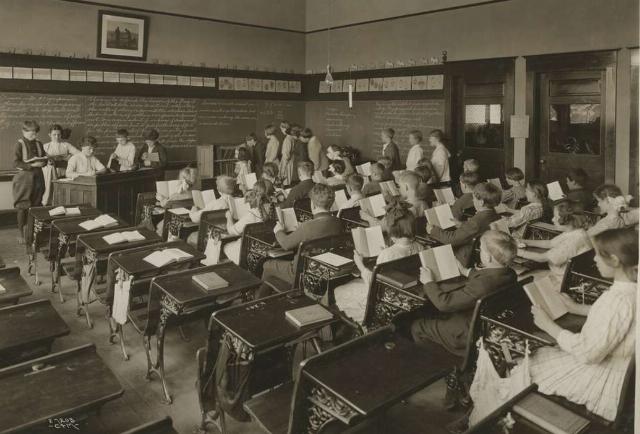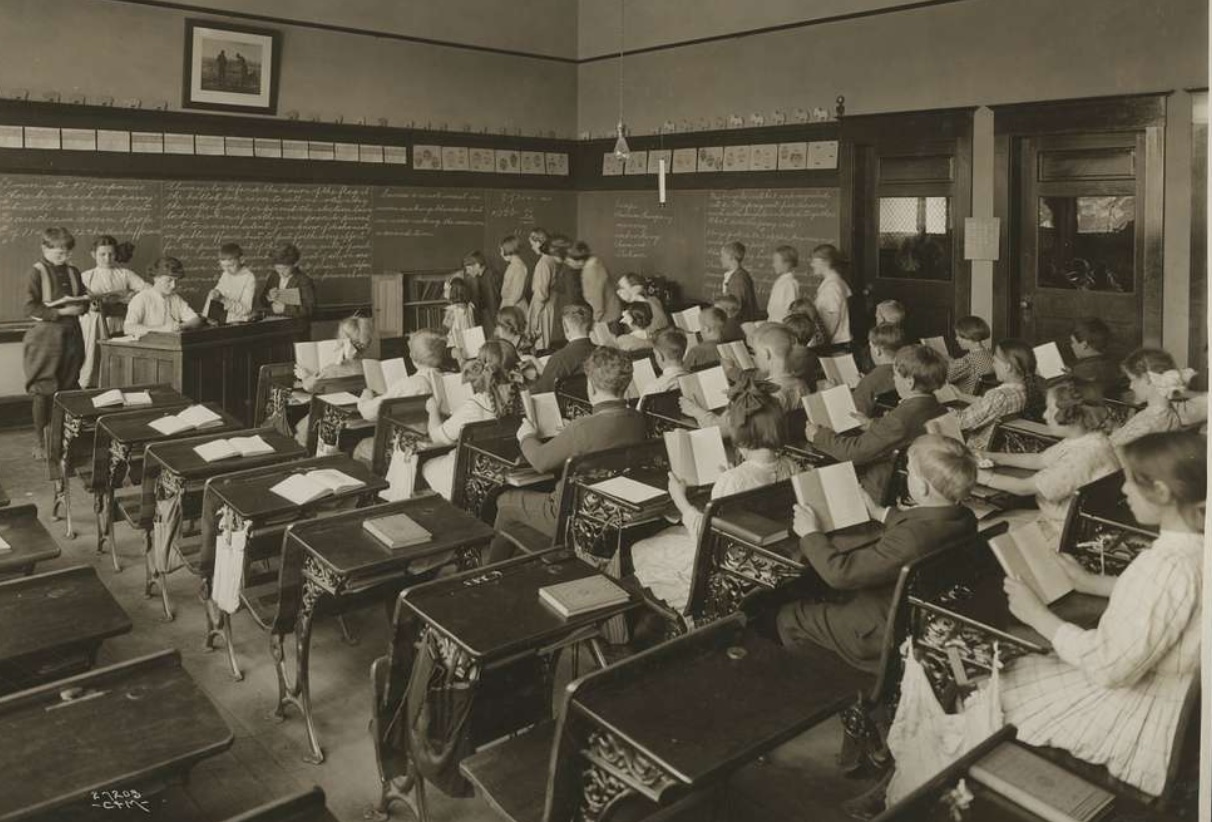
The first step in solving a problem is to acknowledge that the problem exists. Only then can steps be taken to solve, or at least manage the problem. During the COVID lockdowns many schools instituted remote learning and parents got to see first-hand some of the things their children were being exposed to. We know there’s a problem, but what can we do about it?
Young children learn at an astonishing rate, so it makes sense for parents, as their children’s primary educators to take advantage of their receptivity. If teachers are immersing our children in objectionable ideologies we might be able to remove them from that environment. Transferring to a different school may help, but we’re still relying on someone else to teach our children what we think they should know. A better tactic is to equip them with the values and intellectual skills they need to form and defend their own opinions. Children may not be able to discuss current events at an adult level, but they do possess a sense of fairness and are (hopefully!) able to distinguish right from wrong.
We can engage in conversations with our children at appropriate levels, and in order to do that we have to be well-informed ourselves. The public is turning away from newspapers and televised news programs and are increasingly getting their information from podcasts, internet news and opinion sites, and social media. It’s a simple matter to access a few of those each day and bring them up in conversation afterwards, perhaps around the dinner table.
One tactic might be to ask those at the table to contribute something to the conversation. It could be something that happened to them that day or a news item they heard about. There are enough major news stories breaking each day that one of those could easily become a conversational topic. Mom or dad could explain the event and then the children could take turns responding to it. Children could mention what they think about it, or how it makes them feel and why. Children like being asked about their opinion and doing so encourages them to think seriously about the issue being discussed.
This is a good opportunity to introduce proper debating techniques, especially in how to disagree with another person in a constructive way. Some news programs feature group discussions where participants discuss an issue from different perspectives. While these are probably not very entertaining for very young children, those who are a little older might benefit from seeing how adults conduct debates. Some of these shows are better than others, and still others show how not to conduct a debate. Choose wisely.
Another approach might be to use television commercials and programs to teach about bias. Rather than simply consuming the information at face value, ask your children what factors might be underlying the advertisement or a particular scene or bit of dialogue. Doing this encourages them to look deeper into the situation and look for underlying motivations. If they can identify someone else’s viewpoint, ask them what they think about it. Do they agree or disagree with it, and why? Have them justify their opinion.
<img alt captext="Seattle Public Library” class=”post-image-right” src=”https://conservativenewsbriefing.com/wp-content/uploads/2025/01/raising-next-gen-conservatives.jpg” width=”450″>At this point it’s also helpful to teach them to avoid unjustly vilifying those with whom they disagree. Conflicts can become teachable moments in which parents model respectful problem-solving skills. The Socratic Method is very useful in this regard. Watching Peter Doocy questioning Karine Jean Pierre was very instructive. They were usually both polite in their exchanges but one almost always emerged unscathed afterwards. The person who has the facts on his side and asks basic questions forces the other person to defend or explain his position and in some cases, that position is untenable. This is a valuable skill for anyone to learn, especially children. Hopefully mom and dad model respectful problem-solving themselves.
Children notice how their parents interact with others and how they engage with society. It’s a good idea for parents to praise the positive values of others they see being demonstrated. Thanking a service member or a law enforcement officer for his service makes a big impression on children, as does discussing the contributions those serving in our military, police and fire departments and EMTs provide. Children should know about those organizations and what motivates people to participate in them. Parents could compare and contrast how children earn rewards and consequences around the house with the manner in which promotions are earned and crimes are punished in society at large. The family is, after all a microcosm of society.
Children of middle-school age and older might be interested in attending meetings at the local town hall, school board or city council. If they knew a little about the issues to be discussed beforehand and had an opportunity to talk about them at home they’d have a greater appreciation of seeing those issues debated in a public forum. If they feel strongly about an issue, encourage them to write a letter to their mayor or councilman, congressman or senator. Many politicians will reply to such letters and getting official mail can be a rewarding experience for a child.
Visiting historical sites and museums can help open children’s minds up to the world around them and give them a sense of perspective and the depth of history. Rather than focusing on the alleged misdeeds of historical figures, have them look into the positive contributions they made to their communities, the struggles they faced and how they overcame them.
When voting season rolls around, discuss the issues with your children at a level they can understand and ask them their opinions. Talk about the various candidates and what they’ve had to say on the issues. Ask your children with whom they agree or disagree and why. Do they agree with a particular candidate on some matters and disagree on others? Have them rank some of the issues in the order they feel is most important and decide on a candidate they would vote for, and why. Some children might be excited to see mom and dad volunteer for a political campaign or even run for a position. Maybe they’d like to help out in a campaign if it were allowed, or they might consider running for a position on their own student council, debate team or related club. When it comes time to vote, do it in person and consider taking your children with you so they can see the process first-hand. That will make it real for them.
Image: Seattle Public Library






